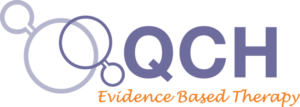Inner Child Therapy with Rowenna
London and Online Inner Child Therapist
INNER CHILD THERAPY MIGHT BE FOR YOU IF...
Do you find yourself experiencing any of the following symptoms? These could be signs that you might have some childhood emotional wounds which could be helped with Inner Child Therapy:
-
Overreacting
To certain situations... maybe you surprise yourself with how angry you get, find yourself crying uncontrollably, or feel afraid even though you know you're safe?
-
Struggling
With relationships that follow the same painful patterns? Or sabotaging something you know is good and pushing people away?
-
Battling
With a critical inner voice that tells you you're not good enough? Or beating yourself up for things that happened years ago?
You're not broken!! You're simply responding to old wounds that need healing...
Inner Child Therapy could help you if you identify with any of the above. Book a free consultation with me to discuss how this powerful therapy can help you change old patterns for good!
Book a Free ConsultationHave you noticed these patterns in your life?
In Your Relationships:
- You feel anxious when someone doesn’t text back immediately, or you push people away when they start to get close
- You’re attracted to partners who are emotionally unavailable, or you end relationships out of fear of being rejected
- You people-please until you’re exhausted, then feel resentful, or you’re hyper-independent and never ask for help from others
Throughout Your Daily Life:
- You swing between feeling “not good enough” and having to be perfect
- Criticism feels like a personal attack, even when it’s constructive
- You struggle to set boundaries without feeling guilty
Inside Your Mind
- You feel like you’re “too much” or “not enough” – sometimes both
- There’s a harsh inner critic that sounds suspiciously like a parent
- You know you’re overreacting but can’t seem to stop
These aren't character flaws. They're signs of inner child wounds.
When we experience attachment injuries in childhood – whether from obvious trauma or subtle emotional neglect – part of us gets stuck at that age. These “inner children” still react as if they’re in danger, even when our adult life is safe.
The good news? With the right support, these patterns can change!
Your Inner Child Is In There – Waiting For You To Notice Them
Inner child therapy allows you to connect with and heal emotional triggers and attachment issues caused by challenging early life experiences. An inner child is a subconscious “part” of you, representing a childhood experience shaping how you feel about yourself and the world.
We all have inner children. When they are “triggered”, we can be emotionally hijacked by these “parts”. This can cause us to think and feel similarly to how we did when these significant events happened to us in childhood.
If you struggle with low self-esteem, feel anxious or avoidant in relationships, or feel like you react irrationally to some situations, you might have some inner child wounds.
As an Inner Child Therapist, I focus on helping my clients heal these childhood triggers and develop an ability to self-regulate emotions and nervous system responses.

What is Inner Child Therapy?
Inner child therapy focuses on healing these subconscious “parts” of the self and reducing the impact of emotional triggers and attachment issues. These triggers are usually the result of experiences in childhood that have emotionally harmed us. We call these emotional wounds “attachment injuries”.
Attachment injuries can come in many forms. Contrary to popular belief, they aren’t always from evident failings in parenting like direct abuse and neglect. Sometimes our parents’ own struggles and anxieties can affect us enough to cause our nervous system to go into a state of overwhelm, resulting in an attachment injury.
As we grow in childhood, we develop an internal model of our parents, which we rely on to guide us as we become more independent. If you grew up with parents who were preoccupied with their own struggles or needs, or were criticising, abusive, or neglecting, then you may have developed an internal model of parents that treat you in the same ways.
This can lead to negative self-talk, low self-esteem, struggles with identity, and an inability to create and maintain healthy relationships. It can also lead to addictions and a whole host of other mental health issues.
I work with people all over the UK and online to help them develop a new, healthy internal model of a loving parent who can show up and support their inner children.
Meet Inner Child Therapist, Rowenna
What is an Attachment Injury?
Before we developed more of an understanding of trauma, most specialists believed that only overt forms of abuse, natural disasters, war, crime and terrorism contributed to trauma and PTSD.
Thanks to the work of many forward thinking specialists such as Pia Mellody, Peter Levine, Stephen Porges, Gabor Matè, and others, we now know that attachment trauma can have just as harmful an impact on the nervous system.
Attachment trauma can come in many forms. It is characterised by consistent or prolonged disruption to feelings of safety with one or more primary care givers. This can be for any reason, and is not only limited to overt cruelty and abuse.
Pia Mellody, suggests that regular exposure to behaviour, language, information or overwhelming experiences, can be harmful to a child’s development. This can also include unintentionally damaging situations. In most cases, the severity of the attachment injury (also known as the core wound) will determine the intensity of the symptoms later in life.
If prolonged, this type of attachment wounding can lead to developmental immaturity issues and sometimes mental health challenges. It can also result in difficulties self-regulating our emotions, forming and maintaining relationships in later life.
Extreme attachment injuries:
- Physical abuse including violence, sexual abuse, aggressive or threatening behaviour (whether witnessed or subjected to)
- Neglectful or abandoning parents
- One or both parents addicted to drugs or alcohol
- Parent/s that have been incarcerated
- Death, suicide or attempted in the family
- Controlling, manipulating, gaslighting the child
- Forced labour or forcing to do tasks that are unmanageable for a child
- Restricting access to food, hygiene and/or basic needs
- Withholding visiting rights from another parent or family member
- Parents or siblings with severe or mental health issues
Other types of attachment injuries:
- Divorce/separation
- Financial instability/poverty
- Emotionally avoidant parent/s
- Leaning on the child for emotional support
- Parents with mild to moderate mental health struggles
- Over-protective, overbearing or over-esteeming parent/s
- Criticising, emotionally rejecting, harsh parents
- Emotional manipulation, parentifying or adultifying the child (such as confiding in the child, oversharing, using the child for emotional support etc.)
- Using the child to manipulate other family members or organisations
- Using faith, education or status to shame or induce fear in the child
What are the Symptoms of Childhood Attachment Wounding?

The symptoms one can experience from childhood attachment wounding can vary and can affect us in all areas of life. According to the PIT model, developed by Pia Melody and The Meadows, these issues can include:
- Less than or better than self-esteem (the latter taking the form of grandiosity or even narcissistic personality disorder in the extreme)
- Boundary issues (unable to set and maintain healthy boundaries or overstepping others’ boundaries)
- Issues of reality (difficulty owning our reality, seeing the self as bad, ugly, unlovable, or good and perfect)
- Dependency issues (too needy, needless, wantless, people pleasing, or anti-dependent)
- Moderation and containment issues (out of control, emotionally manipulative, over-contained/walled off, or controlling of others)
This can all lead to a range of symptoms, including:
- Low self-esteem, feeling defective, broken, or bad
- Resentment and raging issues
- Negative control issues
- Addictions, mental and physical health problems
- Fear of intimacy
- Enmeshment and avoidance issues
- Dishonesty
- Problems making decisions and taking care of oneself
- Feeling disconnected from the self and others, a low sense of purpose, and feelings of not belonging
- Intensity issues such as social anxiety, phobias, rejection hypersensitivity, and more
How Inner Child Therapy Can Help
Inner child therapy works by supporting the person to reparent and heal their inner child selves. By developing your own inner loving parent, you can step in and nurture your inner children in ways that the primary caregivers were unable to for whatever reason.
Within a safe and supportive environment to revisit painful feelings and emotions, it is possible to heal emotional scars on the psyche and nervous system. It’s not always necessary to go over painful memories, which means we don’t have to relive memories that can re-traumatising.
Learning to esteem our younger parts and becoming our own internal parent/s, gives us the ability to recognise and regulate our triggers. With enough healing work, you can approach yourself with more compassion, self-love and acceptance. You can let go of shame and fear of abandonment, begin to trust others, and develop healthy and meaningful relationships.
Inner Child Therapy Can Help You To:
- Develop healthy self-esteem and self-love
- Let go of toxic relationship patterns
- Build healthy boundaries and impulse control
- Learn to self-regulate when experiencing difficult emotions
- Overcome addictions and addictive behaviours
- Become better at understanding and communicating your emotions and speaking your truth
- Develop self-care routines that stick
- Build and maintain healthy relationships
How You Can Work With Me

I currently provide a combination of Inner Child Therapy and Cognitive Hypnotherapy online. On my bookings page, you’ll find various options to accommodate different needs and budgets. You can view all of my packages and fees here.
Personal Therapy & Coaching
No matter where you are, inner child work can help you heal the past and begin living more in the present. When you develop a deeper connection with yourself and heal childhood wounds, you can feel freer inside and start showing up as your most authentic self. And everyone deserves to feel happy and whole.
Group Coaching & Courses
I also offer group coaching and courses where you can grow alongside other people on an inner child healing journey. Healing in connection with others can be very powerful and is a great way to build new, healthy connections with others. It can also help us learn relationship-building and communication skills for life.
Want to learn more? Book a free consultation below to discuss how I can help you with inner child therapy. I work with people of all ages, genders, and backgrounds, and it’s never too late to reach out for support.
How to Heal Your Inner Child, a 6 Week Live Online Course
Find out more about my How to Heal Your Inner Child course here. Join a group of others on a life changing journey to heal and reparent their inner children, build your self-esteem and start living life as your most authentic self.
FAQ
What is inner child therapy, and how does it work?
Inner child therapy helps heal childhood emotional wounds by connecting with the wounded or neglected younger parts of yourself. It provides them the care they lacked, fostering a loving internal parent to comfort and guide these inner children. This process helps break reactive patterns and emotional triggers.
How long does inner child therapy take?
The healing journey is unique for everyone. Some experience major shifts within 3-6 sessions, while others benefit from longer-term support. Many start with a 3-session package to experience the process, then choose monthly sessions for ongoing growth.
What's the difference between inner child therapy and regular therapy?
While traditional talk therapy focuses on understanding your thoughts and behaviors, inner child therapy goes deeper to heal the emotional roots of your struggles. Instead of just talking about your childhood, you’ll actually connect with and comfort the younger parts of yourself that are still hurting.
Can inner child therapy be done online?
Yes. Online inner child therapy is just as effective as in-person sessions. Many clients find they feel more comfortable and safe exploring vulnerable emotions from their own space. I work with clients throughout the UK and internationally via secure video sessions, providing the same quality of care as face-to-face therapy.
How do I know if I have inner child wounds?
Common signs include overreacting to criticism, struggling with boundaries, repeating unhealthy relationship patterns, harsh self-talk, people-pleasing, fear of abandonment, difficulty trusting others, and feeling “not good enough” despite external success.
Is inner child therapy suitable for trauma survivors?
Inner child therapy is particularly effective for healing childhood trauma and attachment wounds. The approach is gentle and doesn’t require you to relive traumatic memories. Instead, we focus on providing your inner children with the safety and care they need now.
What happens in an inner child therapy session?
Sessions typically begin with exploring current struggles and identifying which inner child is activated. Using guided visualization and hypnotherapy techniques, we then connect with this younger part of you. You’ll learn to comfort and reparent this inner child, giving them what they needed but didn’t receive. Sessions end with practical tools to continue this healing between appointments.
Do I need to remember my childhood to do inner child work?
No, you don’t need clear memories of your childhood. Your inner children show up through your current emotional reactions and patterns. We work with what’s present now – the feelings, beliefs, and behaviors that stem from childhood experiences. Your nervous system remembers even when your conscious mind doesn’t.
How much does inner child therapy cost?
I offer various packages to suit different needs and budgets, from single sessions to monthly programs. Additionally, I run group programs that provide a more affordable way to access this transformative work while connecting with others on the same journey. You can see all of my fees and packages here.
Want to Know More?
If you’d like to know more about how Inner Child Therapy can help you, let’s start with a call and I’ll be happy to answer any questions you might have. We can see if we both feel like we’re a good fit to work together and discuss any personal needs you might have. The call is free and you don’t need to prepare anything in advance, and there’s no obligation to go further if you decide it’s not for you. Let’s start planning your road to recovery!

